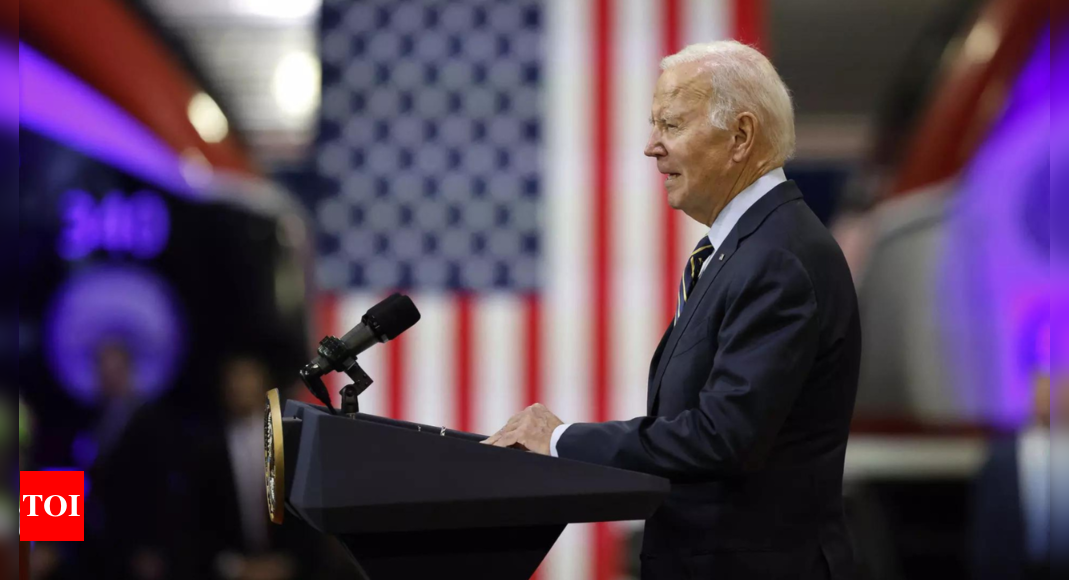
MUMBAI: President Biden’s executive order (EO) on artificial intelligence (AI), issued on October 30, 2023, could transform the immigration landscape. The EO directs US immigration agencies to streamline the immigration process for individuals who possess AI expertise, amend the J-1 exchange visitor program and modernize the existing immigration pathways for AI experts, including the EB-1, EB-2 (both of which are employment based green cards) and O-1 (non-immigration visas for those with extraordinary abilities) categories and the International Entrepreneur parole program.
Timelines relating to smoothing the immigration processes and ushering in suitable policies, have been set for various agencies to ensure that the objective of the EO is met.
1. Visa processing: Within 90 days, the US Department of State (DOS) and Department of Homeland Security (DHS) are required to streamline processing times for visa petitions and applications, including ensuring continued and timely availability of visa appointments for foreign nationals who seek to work on, study, or conduct research in AI or other critical emerging technologies in the US. They are also required to
facilitate continued availability of visa appointments in sufficient volume for applicants with expertise in AI or other critical and emerging technologies.
2. J-1 exchange program: Within the next 180 days, DOS is ordered to consider changes to the J-1 exchange visitor program that could enhance opportunities for AI talent. These include reviewing the J-1 Exchange Visitor Skills list to potentially reduce the number of J-1 nonimmigrants in AI and related fields who are required to return to their home country for two years after completing their J-1 program in the US. The EO urges DOS to consider new regulations governing the two-year home residency requirement for J-1 exchange visitors, including updates to the 2009 list of countries and skills subject to the home-residency requirement.
3. Review and initiate policy changes in existing immigration pathways: DHS is required to within 180 days review and initiate any policy changes that it determines necessary and appropriate to clarify and modernize existing immigration pathways for experts in AI and other critical and emerging technologies, including the EB-1, EB-2 and O-1 categories, and the International Entrepreneur parole program.
The EO also asks DOS to consider AI workers who are already in the US in the development of its upcoming domestic visa renewal program and eventually this is to be expanded to F-1 students and J-1 exchange visitors.
Mitch Wexler, partner at Fragomen, a global immigration law firm sums up: “While the new EO emphasizes the Biden Administration’s interest in promoting AI innovation through recruitment of foreign talent, immediate changes are unlikely, though some process and policy developments may emerge in the future as a result of the required reviews.” He explains that some changes, like the directive for increased visa appointment availability at US consulates, are likely to depend on agency staffing and resources. Changes that require a regulation would generally be implemented through notice and comment rulemaking, which can take several months or more.
Watch AI risks: US President Joe Biden meets Microsoft’s Satya Nadella and Google’s Sundar Pichai
